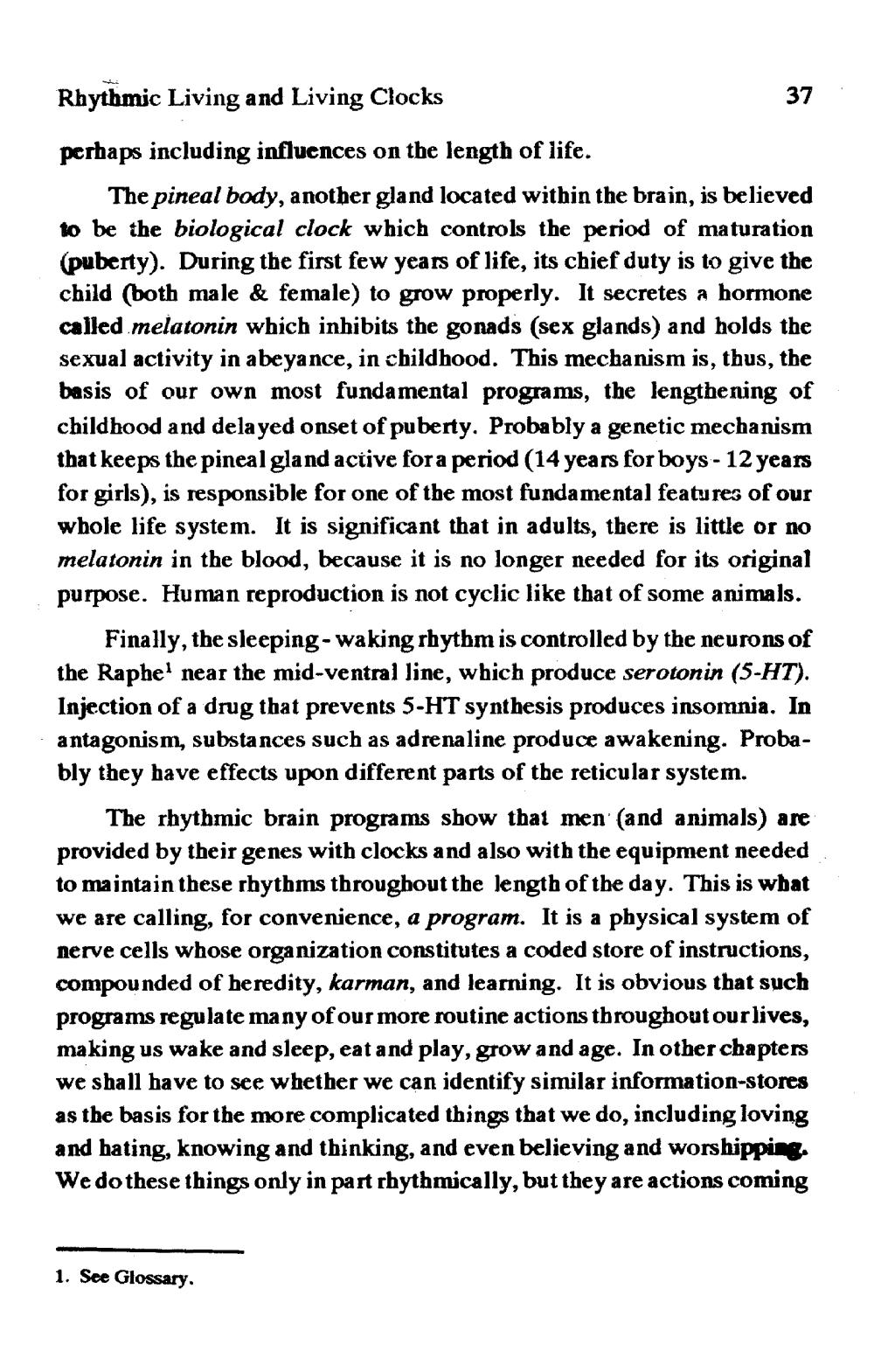________________
37
.
Rhythmic Living and Living Clocks perhaps including influences on the length of life.
The pineal body, another gland located within the brain, is believed to be the biological clock which controls the period of maturation (puberty). During the first few years of life, its chief duty is to give the child (both male & female) to grow properly. It secretes a hormone called melatonin which inhibits the gonads (sex glands) and holds the sexual activity in abeyance, in childhood. This mechanism is, thus, the basis of our own most fundamental programs, the lengthening of childhood and delayed onset of puberty. Probably a genetic mechanism that keeps the pineal gland active for a period (14 years for boys - 12 years for girls), is responsible for one of the most fundamental features of our whole life system. It is significant that in adults, there is little or no melatonin in the blood, because it is no longer needed for its original purpose. Human reproduction is not cyclic like that of some animals.
Finally, the sleeping - waking rhythm is controlled by the neurons of the Raphe near the mid-ventral line, which produce serotonin (5-HT).
Injection of a drug that prevents 5-HT synthesis produces insomnia. In · antagonism, substances such as adrenaline produce awakening. Probably they have effects upon different parts of the reticular system.
The rhythmic brain programs show that men and animals) are provided by their genes with clocks and also with the equipment needed to maintain these rhythms throughout the length of the day. This is wbat we are calling, for convenience, a program. It is a physical system of nerve cells whose organization constitutes a coded store of instructions, compounded of heredity, karman, and learning. It is obvious that such programs regulate many of our more routine actions throughout our lives, making us wake and sleep, eat and play, grow and age. In other chapters we shall have to see whether we can identify similar information-stores as the basis for the more complicated things that we do, including loving and hating, knowing and thinking, and even believing and worshipping. We do these things only in part rhythmically, but they are actions coming
1. See Glossary.




